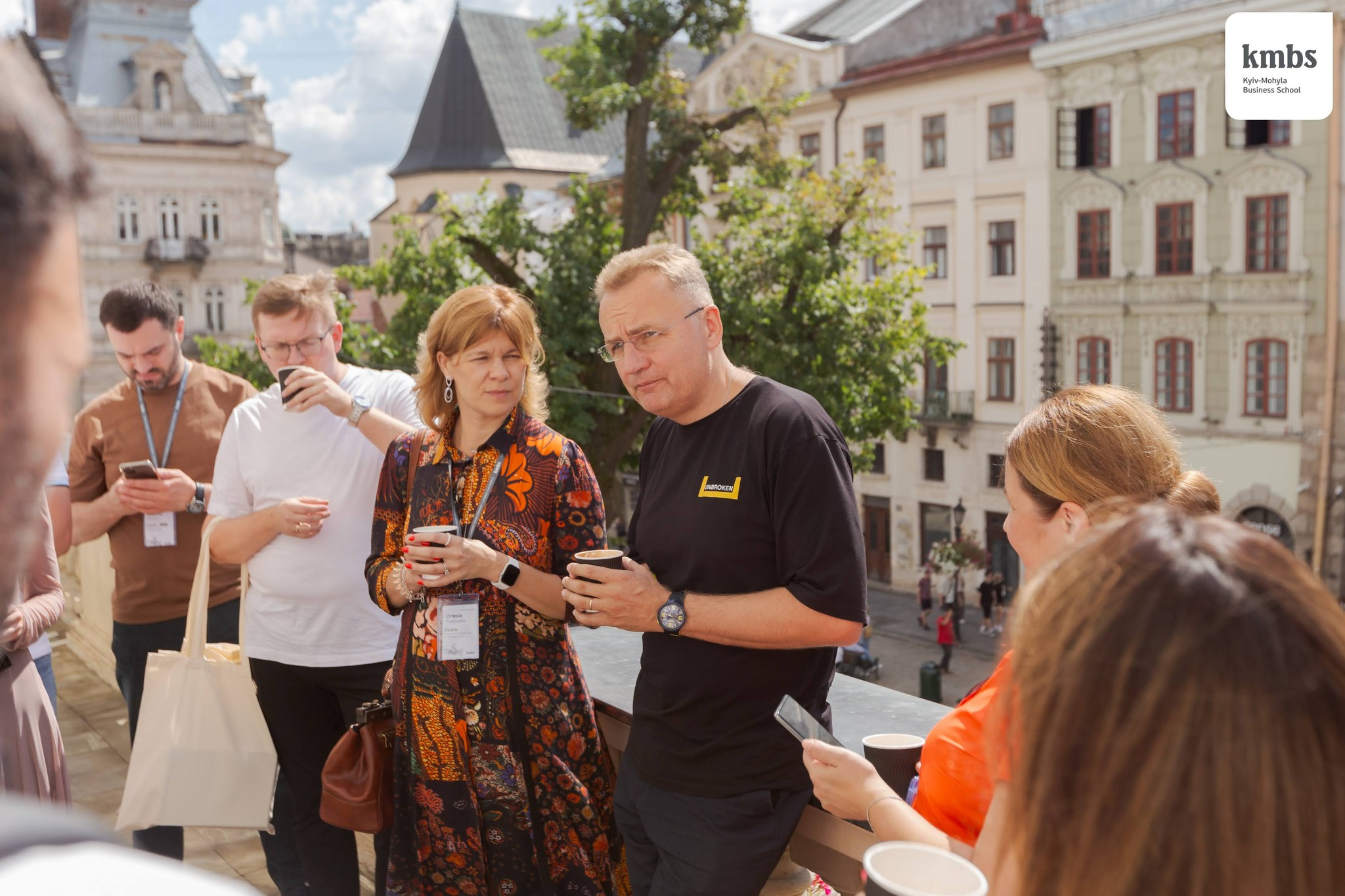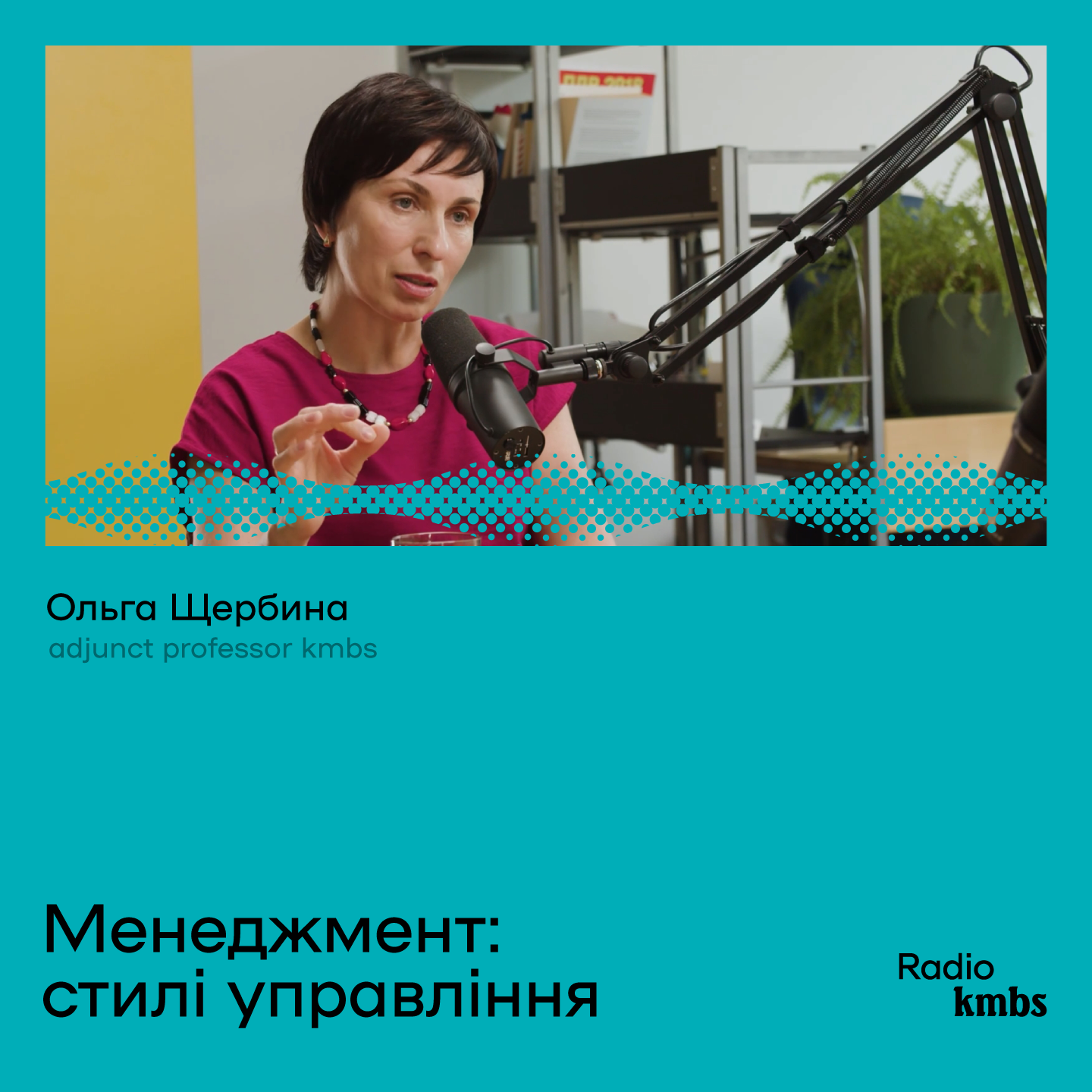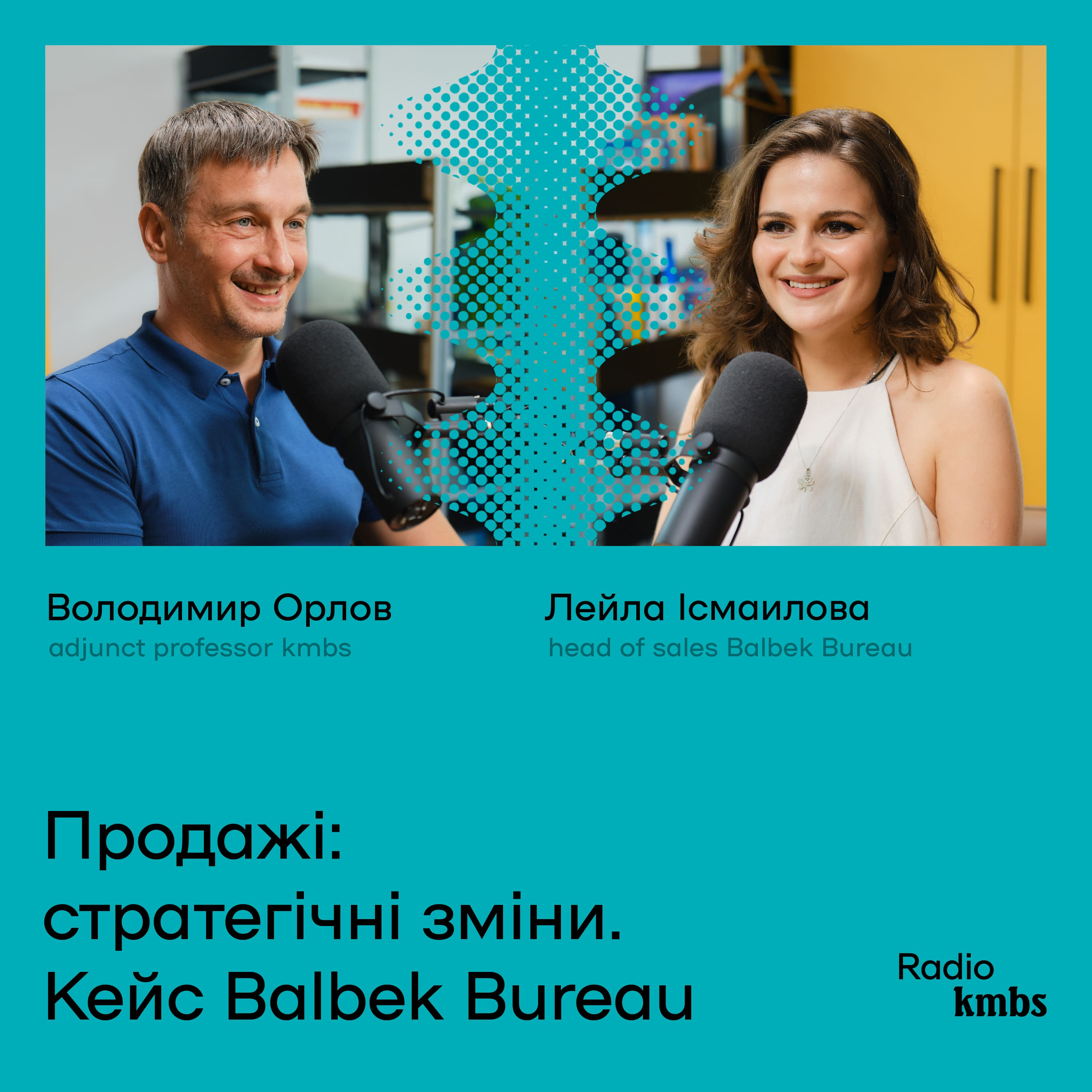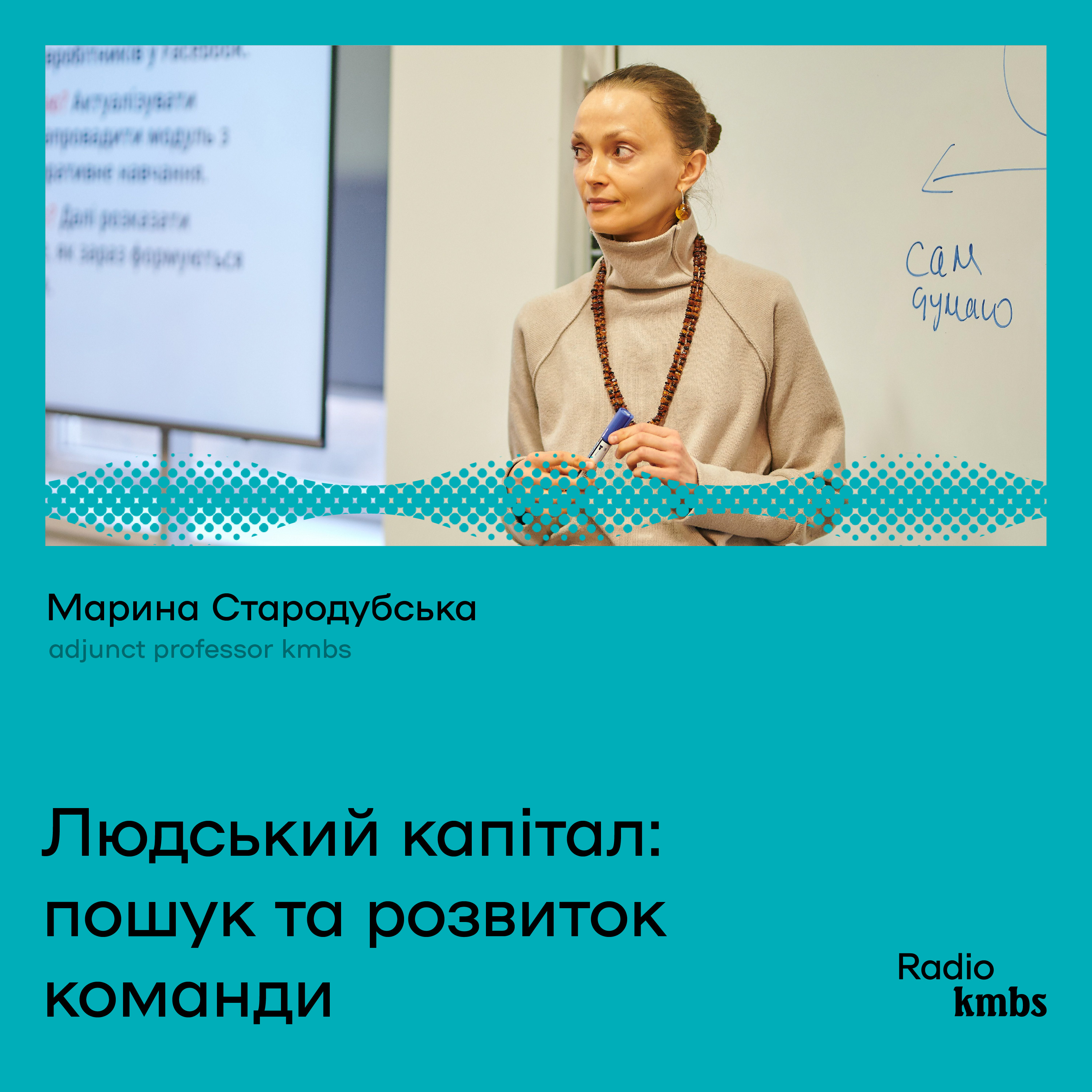While studying at the two-year MBA program at kmbs, participants are required to have field modules where using the example of a specific region; they look – in the paradigm of the Quadruple Helix model – the interaction of four main subsystems in innovation systems: education (together with scientific research), business, government, and society. According to the model, innovation is not only a product of internal investigation but also arises from cooperation between all participants in the system.
This time, the members of the Executive MBA-39 group studied the cases of business, government, academia, and the Lviv community, as well as their interactions.
In addition, the program manager Olena Zhiltsova gave the participants a task: based on the studied cases and reflection, propose ten management conclusions (practices/approaches/beliefs) that can be implemented in the participants' environments and help them act more effectively in the present time.
The research began with a retrospective. In his lecture, Vasyl Kmet, Ph.D., historian-medievalist, archivist revealed the phenomenon of Lviv's cultural space, about leadership lessons from Andrey Sheptytsky with Myroslav Marynovich - Ukrainian public figure, dissident, political prisoner of the USSR, philosopher, religious scholar, publicist, and vice-rector of UCU.
The mayor of Lviv, Andriy Sadovy, told the participants that the war significantly adjusted the city's development strategy and the main vectors of development. Currently, the absolute priority is rehabilitating the military and victims of Russian aggression and strengthening the military-industrial sector, creating favorable conditions for attracting investments and consolidating the role of Lviv as a logistics hub of the state.
The participants explored the development sphere in personal, organizational, and urban dimensions. We got acquainted with the company Avalon, with architect, restorer, cultural and public figure Mark Savitsky, and talked with psychologist and writer Volodymyr Stanchyshyn.
Ukrainian business has experienced unprecedented losses over the past year and a half. However, several factors, including relocation and an excellent geographical position, which provide the country's western regions with a critical role as a window for exports, labor migration, and others, became a prerequisite for market growth in the west of Ukraine. So the participants got acquainted with the case of the OKKO gas station network, visited the offices of the BERTA Group, Kormotech, and SoftServe companies, and also met with Olga Ushakova, commercial director of the Rubizhan hosiery factory. Before the Russian invasion in 2022, this company was one of the five key players in the Ukrainian hosiery market. However, as a result of the military aggression of the Russian Federation, the production, office, and warehouse premises of the enterprise were destroyed, and the equipment was damaged or stolen. Partners - Lviv companies for the production and sale of colored socks Dodo Sock - extended a helping hand to the people of Russia: they provided a substantial loan. They helped to expand production in the Lviv region.
Lviv is one of the leaders in Ukraine in terms of the number of private educational institutions. Private education can attract parents and students looking for an alternative to public educational institutions. It provides more significant opportunities for choice, individual approach, and developing unique programs. Some of these institutions have become one of the best in Ukraine, created a new cultural environment in the city, and attracted a population wanting quality education.
The participants got acquainted with the experience of MRIYDIY - a network that includes a kindergarten, a teacher training center, camps, and other educational formations, which is united by the single methodological approach reflected in the project's name, and also met with the top management of the Ukrainian Catholic University.
The participants immersed themselves in the nuances of modern training of architects together with the co-founder and president of the Kharkiv School of Architecture (which currently operates in Lviv), Oleg Drozdov.
Lviv is known for its active public activity and volunteer initiatives aimed at helping people with social problems and supporting various population groups. Volunteering is essential to the city's public life and contributes to cooperation, charity, and mutual assistance among residents. The participants could see this during a meeting with activists of the public organization BUR (Building Ukraine Together).
Probably the most poignant case of the field module program was a visit to Superhumans, a center for prosthetics and rehabilitation. He made the participants think not only about the usual and unusual approaches to management. But also to realize that our country has changed a lot, and we have such complex challenges that perhaps no other society has ever experienced. Therefore, we have to develop our practices - life, and management.










